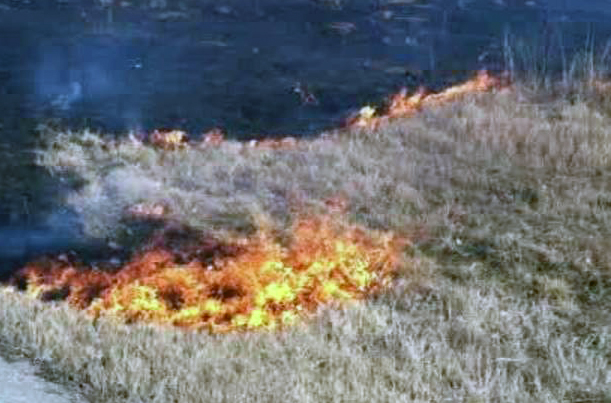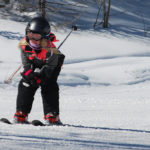Home »

Human-caused fires raise concerns
On Monday, March 9, crews from the Southeast Fire Centre responded to four new wildfires, all of which were human-caused and therefore preventable.
Two of the fires were the result of poorly planned open burning.
A 2.6-hectare fire just outside Baynes Lake was the result of industrial pile burning and the fire escaped into surrounding grassy areas.
An 11-hectare fire west of Highway 95A and a 15-hectare fire 10 kilometres north of Cranbrook were likely caused by recreational activities, such as ATVs or dirt bike use. Anyone riding an ATV or dirt bike should check the condition of the muffler, stay on dirt paths and avoid tall grasses and weeds.
Wildfire Management Branch crews supported local RCMP members and fire departments at a five-hectare grass fire near Lind Creek in Greenwood.
One home in the area was temporarily evacuated.
Monday’s incidents are reminders for the public to remain vigilant with any recreational activities or open fires, and to ensure that they have contingency plans in place to extinguish any fire that may escape. The recent unseasonably mild temperatures, spring-like conditions and low relative humidity in the Southeast Fire Centre have increased the wildfire risk in all snow-free areas. Dried grass from last summer has not had the opportunity to renew itself due to cold overnight temperatures and so it is highly flammable.
Temperatures in the Southeast Fire Centre today are expected to hit record-breaking levels, ranging from the high teens up to 20 degrees.
In British Columbia, the Wildfire Act specifies a person’s legal obligations when using fire in or within one kilometre of forest land or grassland. If an outdoor burn escapes and causes a wildfire, the person responsible may be held accountable for damages and fire suppression costs.
Homeowners and industry personnel are reminded to consult the B.C. FireSmart manual and take the following precautions when using fire:
– Ensure that enough people, water and tools are on hand to control the fire and prevent it from escaping.
– Do not burn during windy conditions. Weather conditions can change quickly and the wind may carry embers to other combustible material and start new fires.
– Create a fireguard at least one metre around the planned fire site by clearing away twigs, grass, leaves and other combustible material.
– Never leave a fire unattended.
– Make sure that your fire is completely extinguished and the ashes are cold to the touch before you leave the area for any length of time.
– Winds in this region tend to be calm in the morning but increase in the afternoon and evenings, which can lead to grass fires that spread quickly.
If you are planning to conduct a grass burn over 0.2 hectares (Category 3 fires) or do any large-scale industrial burning, you must obtain a burn registration number ahead of time by calling 1-888-797-1717.
Before conducting a burn, check with your local fire department, municipality and regional district to check if there are any open burning restrictions or bylaws in effect.
Venting conditions should always be checked before conducting an open burn. If conditions are rated “poor” or “fair”, open burning is restricted. The venting index can be found at: http://www.env.gov.bc.ca/epd/epdpa/venting/venting.html
The Southeast Fire Centre encompasses the area extending from the United States border in the south to Mica Dam in the north, and from the Okanagan Highlands or Monashee Mountains in the west to the B.C.-Alberta border in the east. The Southeast Fire Centre includes the Selkirk and Rocky Mountain resource districts.
To report a wildfire or unattended campfire, call 1 800 663-5555 toll-free or *5555 on a cellphone.
For the latest information on current wildfire activity, burning restrictions, road closures and air quality advisories, go to: http://www.bcwildfire.ca.
e-KNOW







